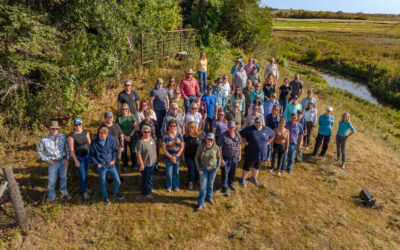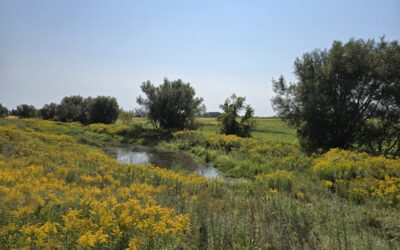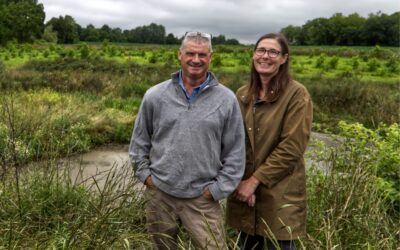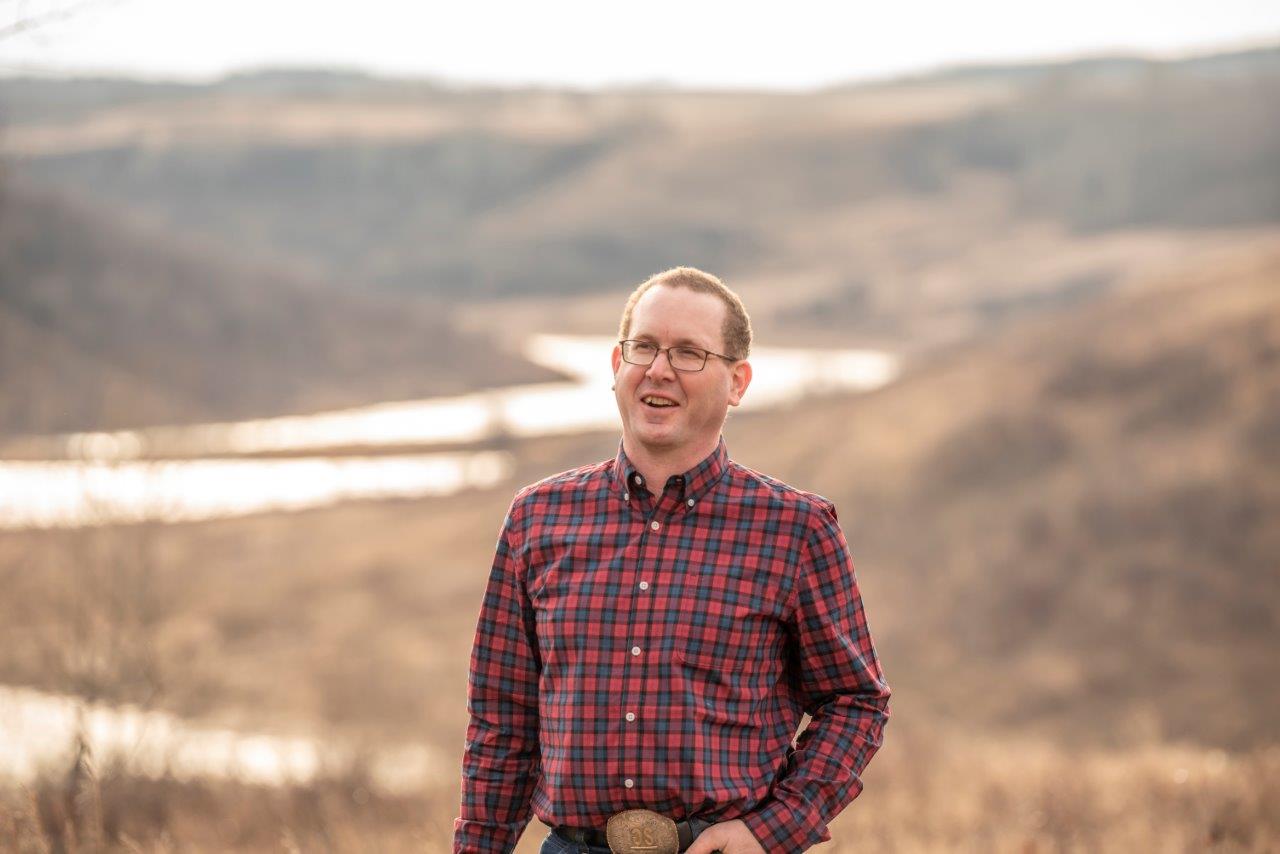
Sean McGrath from Round Rock Ranching.
Round Rock Ranching was originally homesteaded in 1906 and is currently operated by Sean, his wife Tanya and their three children, in partnership with Sean’s parents, Fred and Anne. The ranch, located in the County of Vermilion River, Alberta, runs a cowherd of around 250 cows. The cattle graze year-round on an area consisting of more than 80% native rangeland.
“Every farm or ranch is unique, and so the exact application or specific practices will vary from operation to operation, but the principles behind the practices we try to use are universal,” said Sean.
Sean has been engaged with ALUS since the program first started in the County of Vermilion River in 2010, launching Alberta’s first ALUS project on his ranch. For Sean, ALUS aligned with the principles he was already applying, aiming to bring cleaner air, cleaner water and more biodiversity to the land, so it served as another tool to meet goals.
“An emerging movement is beginning to recognize both current practices in farm management and the importance of grasslands and forages in this carbon cycle. Rangelands and forages can provide many benefits beyond carbon, such as wildlife habitat, biodiversity preservation, water filtration and other valuable ecosystem services,” wrote Sean in his column for Grainnews.
Driven by their principles, Sean and his family work to preserve and promote wildlife, hosting a tremendous variety of species on their land: insects, birds, small mammals (Richardson’s ground squirrels), weasels, badgers, fox, coyotes and large mammals like mule and white tail deer.
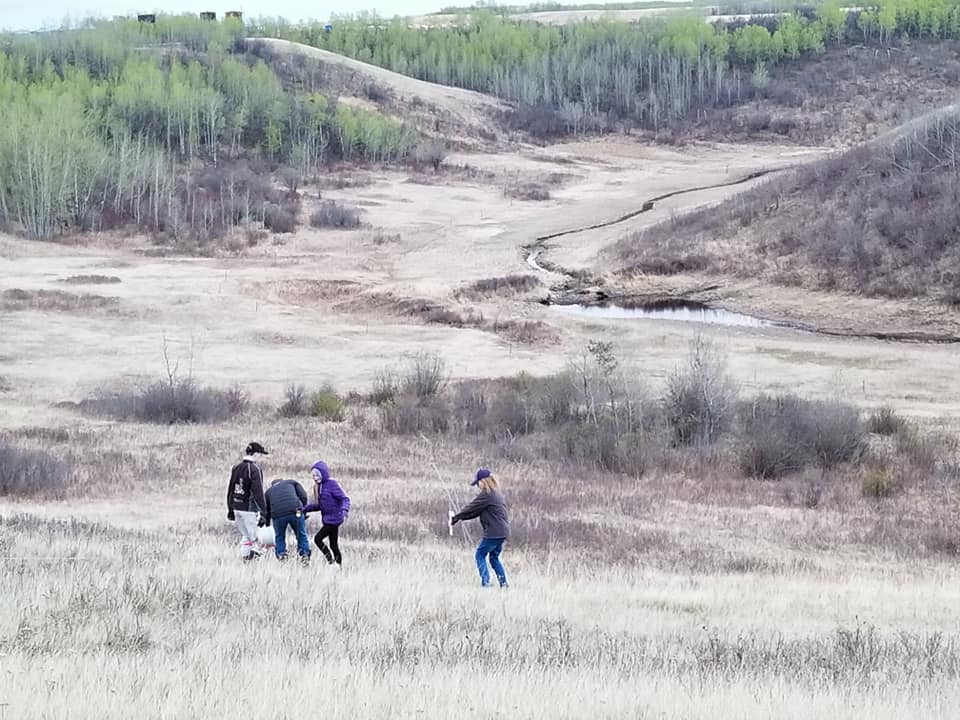
The McGrath’s principles motivate them to manage their livestock in a way that contributes to the health of their land, herd and operation. To that end, they have developed several experimental models of solar fencers and solar water pumps, as well as using various other commercial products.
“The opportunity to understand and apply practices that result from these principles means that agriculture is in a place of great creativity, with the opportunity to deliver environmental goods and services to society well beyond a commodity. Most farmers are ‘doer environmentalists’ at heart.”
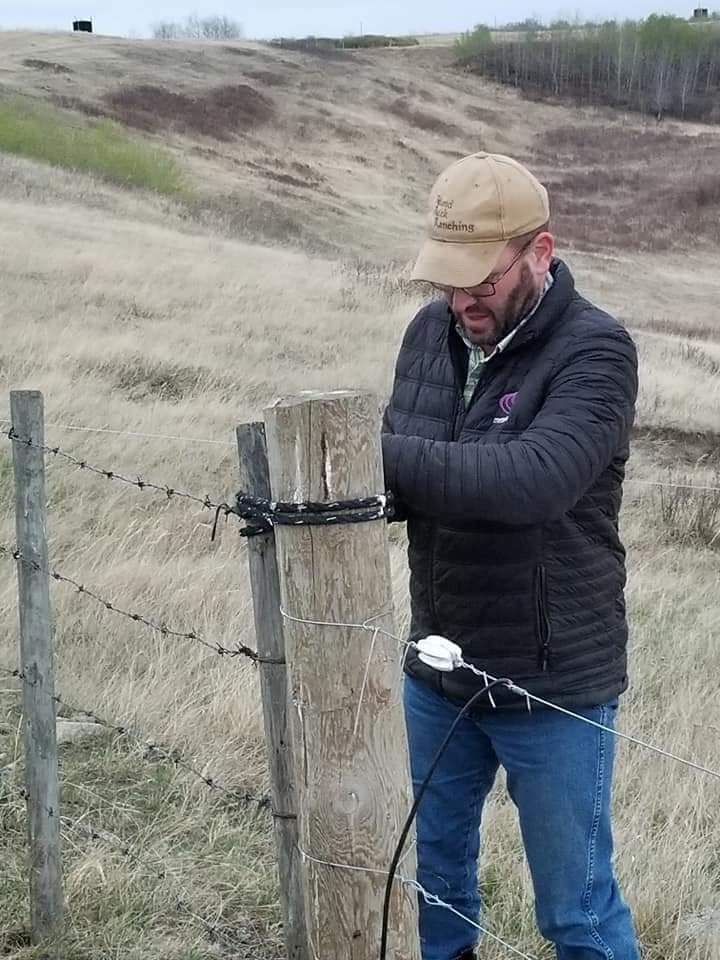
For his part, Sean has identified many positive impacts resulting from his ranching practices, including reduced costs, improved resilience to both drought and flood, increased carrying capacity, greater biodiversity and overall improvements on the landscape.
Round Rock Ranching was recognized by the Canadian Cattlemen’s Association in 2014 as recipient of The Environmental Stewardship Award (TESA).

